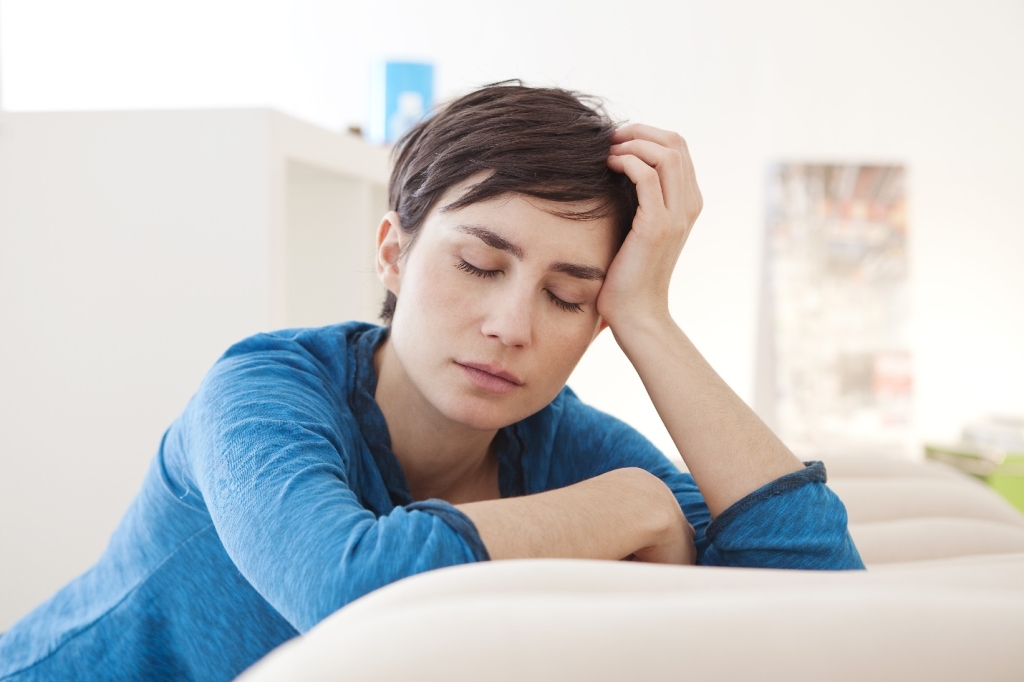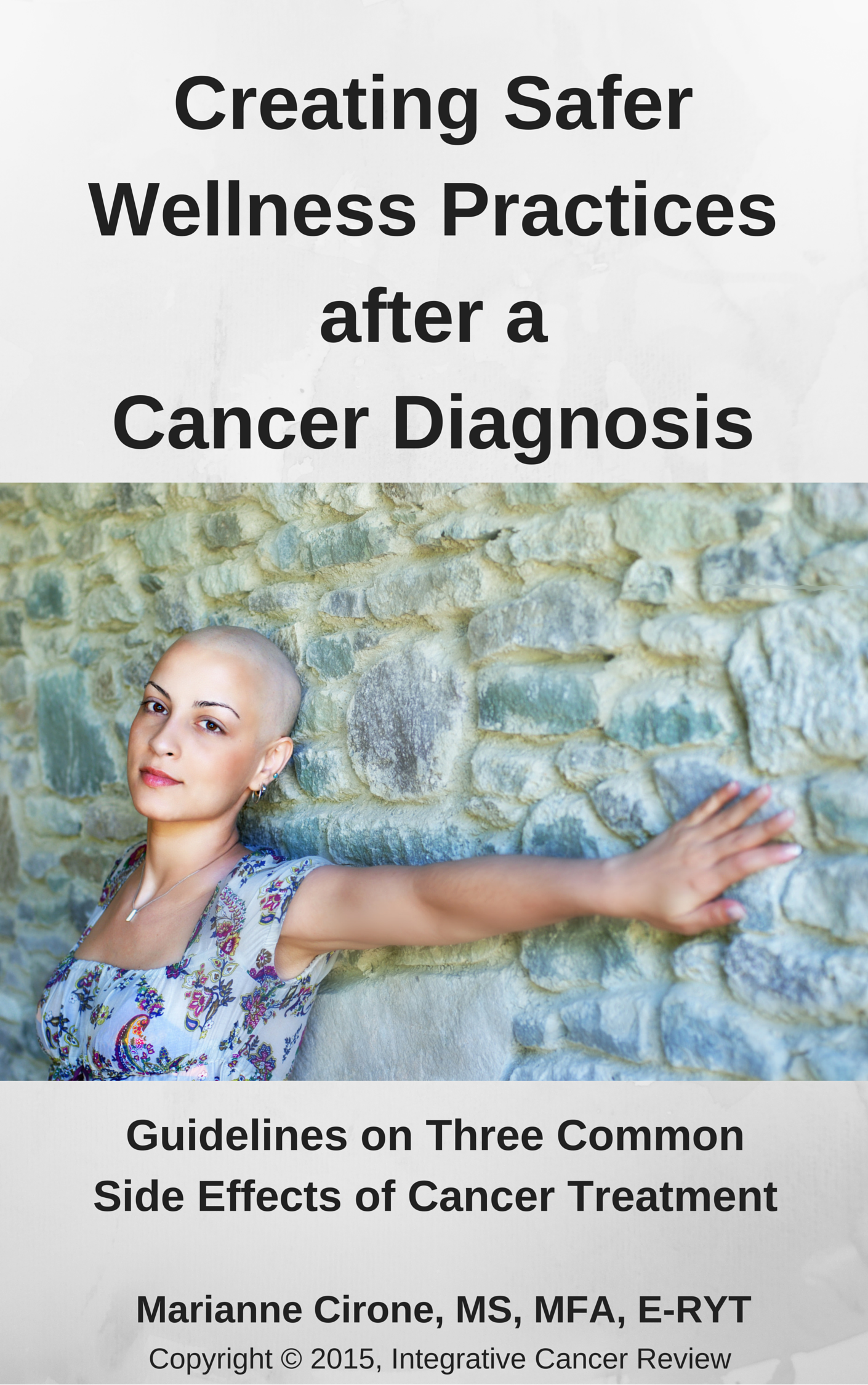
Dealing with Fatigue During and After Cancer Treatment
Ellen, age 48, always had a lot of energy. That was, until she went through treatment for colon cancer. Then, she had a hard time getting up in the morning and had difficulty staying alert at her full time job. And even though she was tired all day, she had a hard time sleeping at night.
Dave, age 62, felt exhausted all the time during his treatment for prostate cancer. He was on disability and was no longer working, so he often stayed in bed until noon or later. He forced himself to get up in the afternoon and go out to exercise.
Fatigue is a common symptom in people treated for cancer, in fact, it may be present in 60-90% of cancer patients. The National Comprehensive Cancer Network describes cancer-related fatigue (CRF) as “a distressing, persistent subjective sense of physical, emotional, and/or cognitive tiredness or exhaustion related to cancer or cancer treatment that is not proportional to recent activity and that interferes with usual functioning.” The highest rates of fatigue appear in people going through chemotherapy, but the symptoms can continue after treatment for indefinite lengths of time. Ironically, therapies that improved sleep quality did not necessarily improve fatigue levels. (If not getting a good night’s sleep is a problem, see the article: Sleep and Insomnia after Cancer.)
Fatigue can include a variety of components, including lack of concentration and loss of memory (mental fatigue), an inability to begin tasks or a tendency to avoid social contacts and activities (volitional fatigue), or tiredness and easy exhaustion from activities requiring physical effort (physical fatigue). A 2001 study in Cancer states: “While the first two forms of fatigue may primarily indicate psychologic disturbance and increased mental distress, the physical fatigue experienced by cancer patients usually has an organic etiology.”
The etiology of CRF is not well understood, although recent research connects fatigue to inflammation and abnormalities in diurnal cortisol rhythms. Other etiological mechanisms include pain, weight loss and impaired nutritional status, anemia, electrolyte and fluid disturbances, drugs with action on the central nervous system, sleep disturbances, and other metabolic system conditions. (Cancer, September, 2001).
Nonpharmacologic Treatments for Fatigue: What Does Help?
Exercise
Based on meta-analyses of studies on exercise interventions for CRF, exercise is one of the interventions shown to significantly reduce levels of fatigue. The specifics of the optimal exercise intervention are still being studied, but studies have shown physical improvement after programs that included walking, bicycling and resistance training. The exercise interventions were also shown to increase the patients’ feelings of control, independence, self-esteem and self-confidence. A study in the December, 2014 issue of Clinical Rehabilitation with positive results for a pedometer-facilitated walking intervention stated that mechanisms for cancer-related fatigue suggest that exercise but “not too much and not too little” could be effective.
The 2001 Cancer study mentioned above stated the importance of activity during and after cancer treatment:
“For many years, the physician’s recommendation to cancer patients has been to rest and avoid physical effort… [but] inactivity induces further muscular wasting and loss of cardiorespiratory fitness. Hence, a lack of physical activity creates a self-perpetuating condition of diminished activity leading to easy fatigue, and vice versa. This mechanism could explain the persistence of fatigue and impairment of physical performance in some patients even years after the end of treatment.”
Clinical or “Talk” Therapy
Studies show that psychosocial interventions—which means meeting with a counselor or therapist—can improve CRF. These interventions include education, self-care, energy management and coping techniques. In May, 2014, the American Society of Clinical Oncology presented the results of their research on cancer-related fatigue, recommending that patients interested in behavioral and psychoeducational therapies should be referred to psychosocial service providers who specialize in cancer. (Note: the ASCO panel also recommended exercise, yoga, acupuncture and mindfulness-based approaches as possible alternatives for dealing with cancer-related fatigue).
Yoga
Several yoga studies have shown benefits for cancer survivors dealing with CRF. In addition to improving the fatigue symptoms, the subjects receiving the yoga intervention also maintained a healthier diurnal cortisol slope and improved heart rate variability.
A major study led by Dr. Janice Kiecolt-Glaser, the Director of the Ohio State Institute for Behavioral Medicine, published in the Journal of Clinical Oncology in 2014 was “Yoga’s Impact on Inflammation, Mood and Fatigue.” Over three months, 200 women with breast cancer participated in a twice weekly yoga group vs. a wait-list control group. The study demonstrated yoga’s positive impact on sleep in cancer survivors, with the yoga group reporting 41% less fatigue, higher vitality, and a decrease in pro-inflammatory substances.
Kiecolt-Glaser said the findings show that “yoga itself was the biggest cause of the positive changes” and pointed out that compared to other treatments for fatigue, inflammation and mood, yoga doesn’t have dangerous side effects. Kiecolt-Glaser said in an interview with Foxnews.com, “It’s an intervention that offers many benefits and has little downside when done with good supervision.”
Qigong/Tai Chi
Several studies support the use of various versions of Tai Chi and Qigong for cancer survivors. In a study by Larkey, et al, published in Annals of Behavioral Medicine in 2015, fatigue decreased significantly in the group that practiced “Qigong/Tai Chi Easy.”
See more on Fatigue & Energy:
- Using Mudras in Cancer Recovery
- The Power of Safe Exercise for Cancer Survivors with Recovery Fitness® Founder Carol Michaels
- Cancer and Cortisol Rhythms: A Key to Health?
- Cancer Harbors: Filling the Gap in Survivorship Plans after Cancer Treatment with Alene Nitzky, Ph.D., RN, OCN ®













